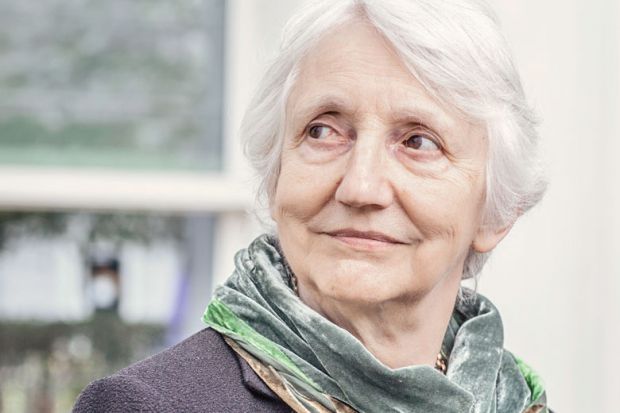A "true citizen philosopher” has been awarded this year’s Holberg Prize, one of the most valuable given annually to an outstanding researcher in the arts and humanities.
Baroness Onora O’Neill, a cross-bench member of the House of Lords and emeritus professor of philosophy at the University of Cambridge, was named on 14 March as the 12th winner of the prize, which comes with a financial award of 4.5 million Norwegian krone (£430,000).
Her books such as Faces of Hunger (1986), The Bounds of Justice (2000) and Justice across Boundaries: Whose Obligations? (2016) have been widely acclaimed for their contribution to understanding of global justice and human rights.
Baroness O'Neill has also played a significant role in public policy issues, serving as chair of the Equality and Human Rights Commission (2012-16) and as a member of the Nuffield Council on Bioethics (1996-98), the Human Genetics Advisory Commission (1996-99) and, since 2016, the Banking Standards Board. She was principal of Newnham College, Cambridge between 1992 and 2006.
Baroness O'Neill came to wide public attention when she delivered the prestigious BBC Reith Lectures in 2002. Titled A Question of Trust, the series explored how methods for ensuring accountability often had the effect of eroding trust in public institutions.
In awarding her the Holberg Prize, committee chair Pratap Bhanu Mehta described Baroness O’Neill as “a true citizen philosopher” whose work has “the extraordinary ability not just to engage with complex issues of global justice” but to illuminate “some of the most intimate questions of morality and public policy".
"Her work on bio-ethics in both theoretical and practical contexts contains some of the most penetrating discussions of autonomy, trust and informed consent," Professor Mehta said. "But it is her ability to blend questions of morality, with an account of psychological plausibility and institutional legitimacy that makes her a powerful guide to the most profound ethical questions of our time.”
Baroness O'Neill's views on accountability have also led her to speak out about recent developments in higher education. She has argued that “standard systems for assessing what is described as the quality of universities” tended to ignore “many matters of substantive educational and cultural significance”. She regretted, for example, that “there is no attempt to judge or record how well the students on any given course can interpret or criticise demanding texts, or how fluently they can write in varied and demanding registers, or how far they have developed their understanding of ethical, social or religious issues”.
The Holberg Prize was established by the Norwegian Parliament in 2003 to recognise scholars who have made an outstanding contribution to research in the arts and humanities, social science, law or theology. The formal ceremony will take place at the University of Bergen on 8 June.
Register to continue
Why register?
- Registration is free and only takes a moment
- Once registered, you can read 3 articles a month
- Sign up for our newsletter
Subscribe
Or subscribe for unlimited access to:
- Unlimited access to news, views, insights & reviews
- Digital editions
- Digital access to THE’s university and college rankings analysis
Already registered or a current subscriber? Login







